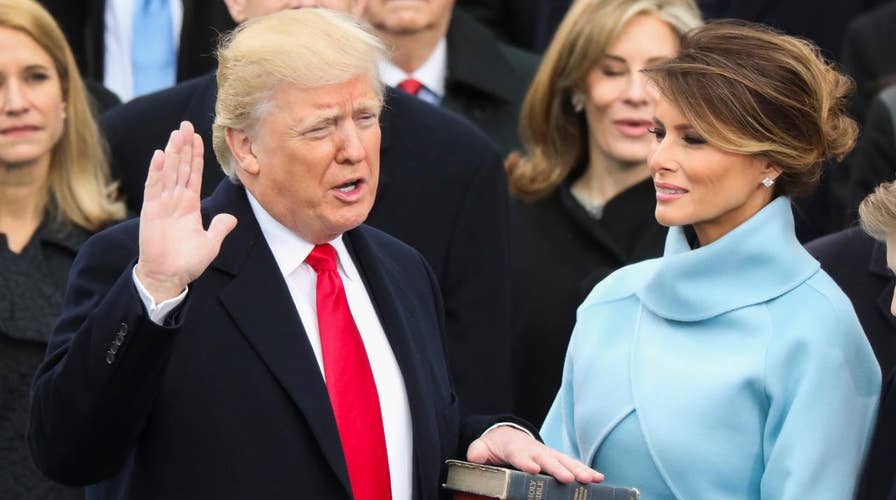Donald Trump sworn in as 45th president
Supreme Court Chief Justice John Roberts administers the oath
Donald Trump – expected to attend Thursday’s National Prayer Breakfast – is clearly not your archetypal Christian. Yet after years of feeling marginalized, millions of America’s faithful are optimistic his presidency signals a renaissance of renewed respect and influence for Christianity in U.S. governance and culture.
They have a right to expect it. Strong majorities of them defeated the Democrats and put Trump into the Oval Office – Protestants (58%), white and Hispanic Catholics (52%), Evangelicals (81%), and even Mormons (61%). Hillary Clinton was strongly backed by non-religious Americans: “nones” (the religiously unaffiliated, 68%); people who never attend services (62%); and atheists and agnostics (61%).
Trump was enthusiastically endorsed by a broad spectrum of Christian leaders, as evidenced in the inauguration ceremony. Clinton was roundly championed by worldly celebrities.
The striking contrasts not only help explain why Trump won; going forward, they hold great promise for Christians beyond politics. Brooke Barnes, reporter for The New York Times, noted recently, “Ultraliberal movie executives, shocked to see a celebrity-encircled Hillary Clinton lose the presidential election to Donald J. Trump, have realized the degree to which they are out of touch with a vast pool of Americans.” Perhaps now the clueless execs will engage more attentively and knowledgeably with Christian audiences and filmmakers.
There’s also reason to hope the great awakening will open the eyes and minds of iconic reportorial corporations on both coasts; it’s sorely needed. The New York Times’ executive editor Dean Baquet himself recently confessed: “I think that the New York-based and Washington-based … media powerhouses don’t quite get religion. We have a fabulous religion writer, but she’s all alone. We don’t get religion. We don’t get the role of religion in people’s lives.”
At the very least, Christians now have a powerful, if unlikely, champion in the White House – a welcome departure from the past eight years. Michael Wear, a former Obama White House staffer, says, “there’s a religious illiteracy problem in the Democratic Party.” Wear recalls a fellow staffer questioning the title of a fact sheet titled Economic Fairness and the Least of These. The staffer didn’t get the meaning of “least of these,” a well-known Biblical phrase. “Is this a typo?” he reportedly queried. “It doesn’t make any sense to me. Who/what are ‘these’?”
Historians will surely debate why Christians selected Trump over candidates more overtly religious than he, such as Ted Cruz. But it’s evident they – like Jesus selecting his disciples – looked past Trump's glaring defects and saw a faithful ally.
As a Christian, I too expect he will make good on his promise to respect and protect religion in America, and not just Christianity. He’s an improbable, imperfect Defender of the Faith, to be sure, but I believe a sincere one.

